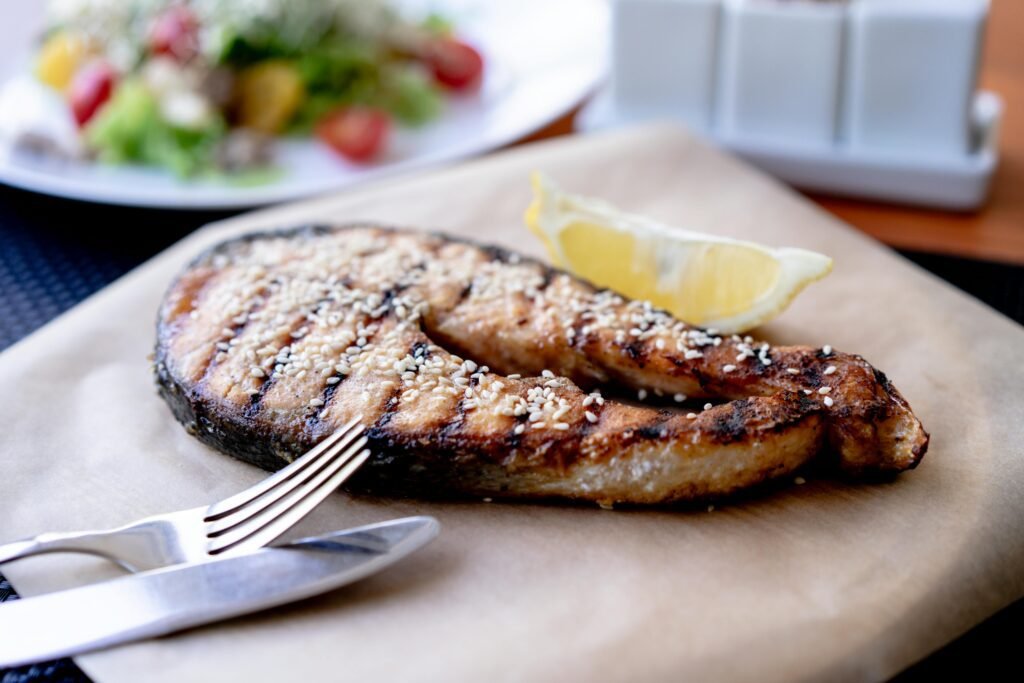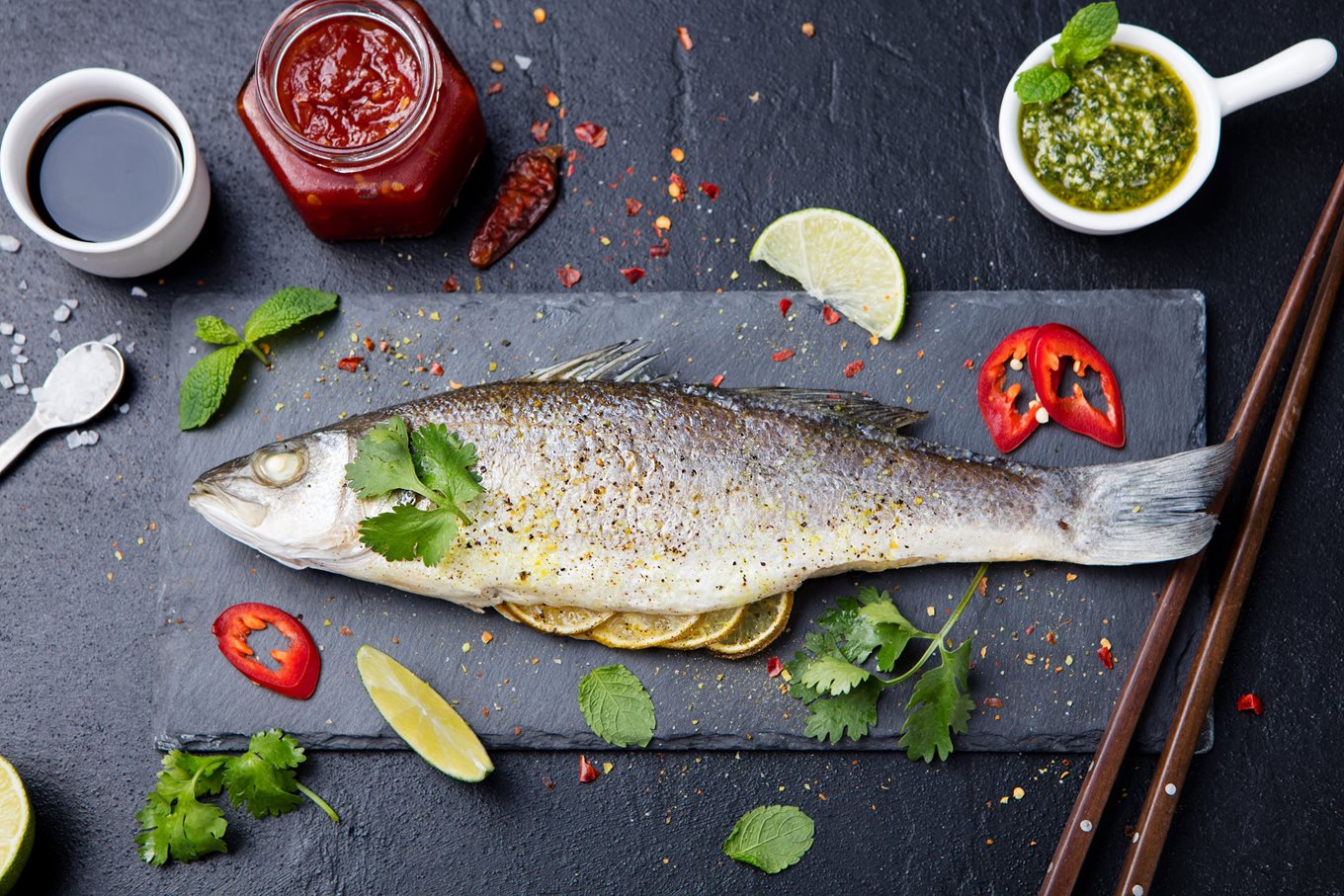
Fish food provides essential nutrients for aquarium fish, ensuring their health and longevity. Choosing the right fish food is crucial for their well-being.
Proper fish nutrition involves selecting high-quality food tailored to the species you are keeping. Fish food comes in various forms, including flakes, pellets, and frozen options. Each type has specific benefits and usage scenarios. Flakes are suitable for surface feeders, while pellets work well for bottom dwellers.
Frozen food offers a natural diet, rich in protein and vitamins. It’s vital to understand the dietary needs of your fish to maintain a balanced aquarium ecosystem. Overfeeding can lead to water quality issues, so feed in moderation. Regularly observe your fish to ensure they are eating well and staying healthy.
Fish Food:
Feeding my fish has become one of those small daily joys—I’ve learned so much about what they like! I’ve found that a mix of high-quality pellets, freeze-dried worms, and the occasional veggie treat keeps them happy and healthy. Watching them get excited at feeding time is such a highlight. It’s amazing how a good diet really brings out their vibrant colors and energy!
Importance Of Fish Nutrition
Fish need the right food to stay healthy. Good nutrition helps fish grow strong. It keeps their immune systems working well. Fish with good nutrition have bright colors. They also live longer lives. Poor nutrition can cause diseases in fish. It can make them look dull and feel weak. Giving fish the right food is very important.
Proper fish food helps keep the aquarium clean. It reduces waste in the water. This keeps the water clear and healthy. Good fish food helps plants grow better. It supports a balanced ecosystem. Too much food can cause algae to grow. This makes the tank look dirty. Always give the right amount of food to your fish.
“Try this homemade fish food recipe to keep your aquatic pets healthy.”
Types Of Fish Food
Flake food is very popular for feeding fish. It floats on the water surface, making it easy for fish to eat. Flake food contains essential nutrients for fish. It is suitable for many types of fish. You can use it for both freshwater and saltwater fish. Make sure to feed the right amount. Too much can pollute the water.
Pellet food is another great option for fish. Pellets come in different sizes. They sink slowly, so fish can eat them at different water levels. Pellet food is packed with nutrients. It is ideal for larger fish species. Always choose the right pellet size for your fish. This helps them eat comfortably and stay healthy.
Live Food Options
Brine shrimp are small and easy to raise. They are a popular choice for fish food. Fish love eating brine shrimp because they are tasty. Brine shrimp are packed with nutrients. They help fish grow strong and healthy.
Bloodworms are another great live food option. They are bright red and wriggly. Fish find them irresistible. Bloodworms are rich in protein. They help fish build muscle. Bloodworms are excellent for carnivorous fish.

Credit: www.nationalgeographic.com
Frozen And Freeze-dried Foods
Frozen food for fish is very nutritious. It is often more nutritious than dried food. Freezing helps to lock in essential vitamins and minerals. Fish get a balanced diet with frozen food. This type of food also has a longer shelf life. Keeping it in the freezer is easy and convenient. Fish love the taste of frozen food. It mimics their natural diet closely.
Freeze-dried fish food is very convenient. It is lightweight and easy to store. You do not need a freezer to keep it fresh. It has a very long shelf life. Preparing it is simple; just add water. Fish enjoy the taste and texture. It provides many of the same nutrients as fresh food. It is great for traveling or emergencies.
“Learn how the principles of sustainable seafood apply to legal seafood practices.”
Vegetable-based Foods
Leafy greens are great for fish. They are full of nutrients. Fish love spinach, lettuce, and kale. These greens should be washed well. Then, cut them into small pieces. This makes it easy for fish to eat. Leafy greens help keep fish healthy and strong.
Algae wafers are perfect for fish. They are rich in fiber. These wafers sink to the bottom. Bottom-dwelling fish enjoy them. They are easy to store. Fish find them very tasty. Algae wafers are a good choice for a balanced diet.
“When planning your meals, consider nutritious options that can also be great for outdoor trips. Check out our backpacking food ideas for inspiration!”
Feeding Schedules
Fish should be fed at least once a day. Younger fish may need food more often. Some fish can be fed twice a day. It is important not to overfeed. Uneaten food can make water dirty. Always remove any uneaten food after feeding.
Fish have small stomachs. A good rule is to feed them what they can eat in 2-3 minutes. Overfeeding can harm fish health. It can also cause water quality problems. Watch your fish while they eat. Adjust portion sizes if necessary.
Supplementing Diets
Fish need vitamins and minerals to stay healthy. Vitamins help their bodies work well. Minerals keep their bones strong. Good fish food has both. Fish get vitamins from plants and small animals. Minerals come from the water and food. It’s important to check the food labels. Make sure they have what your fish need.
Probiotics are good bacteria for fish. They help with digestion. Fish with good digestion grow better. They also get sick less often. Probiotics can be in fish food. Some people add them to the water. Both ways help fish stay healthy. Look for food with probiotics. It can make a big difference.

Credit: www.amazon.com
Common Feeding Mistakes
Fish can only eat so much. Overfeeding leads to leftover food in the tank. This food rots and makes the water dirty. Dirty water can harm fish health. Feed fish small amounts twice a day. Watch them eat within two minutes. If food remains, reduce the amount next time.
Fish need the right amount of food to stay healthy. Underfeeding makes fish weak and sick. Fish should eat twice a day. Give them enough food to finish in two minutes. Always check that all fish get their share.

Credit: www.safefood.net
Frequently Asked Questions
What Is The Best Fish Food?
The best fish food depends on the species. Generally, high-quality flakes, pellets, and frozen foods are recommended.
How Often Should I Feed My Fish?
Feed your fish once or twice daily. Overfeeding can lead to water quality issues and health problems.
Can Fish Eat Human Food?
Some fish can eat certain human foods like vegetables. However, fish-specific food is always the best choice.
Why Is My Fish Not Eating?
Your fish might not be eating due to stress, illness, or unsuitable food. Consult a vet if the issue persists.
Choosing the right fish food ensures healthy and vibrant aquarium life. Proper nutrition supports growth and disease resistance. Always research and select high-quality options for your fish. Remember, a balanced diet leads to a thriving aquatic environment. Happy fish-keeping!
